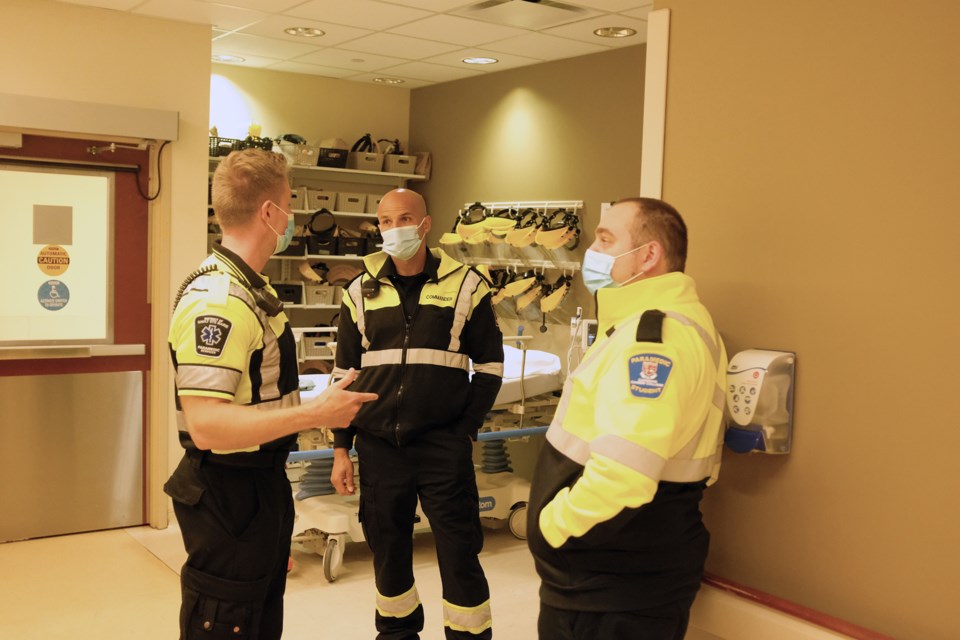After years of worsening statistics when it comes to the amount of time local paramedics are spending offloading patients at the hospital, a recently implemented program is starting to show encouraging results.
Paramedic chief Katie Kirkham presented the paramedic service's monthly offload delay report to the District of Sault Ste Marie Social Services Administration Board (DSSAB) on Thursday.
An offload delay is recorded when a paramedic crew takes a patient to hospital but has to stay with them because there isn't nursing staff available to transfer the patient. In October of 2022 alone, Sault Ste. Marie Paramedic Service crews spent a total of 684 hours waiting to do those transfers, unable to take new calls while doing so.
Through advocacy by the board at the Association of Municipalities of Ontario conference, provincial funding was approved for dedicated offload nursing staff at the hospital to accept those patients and get ambulance crews back on the road faster.
That $530,816 in one-time funding for the 2023/24 fiscal year will allow offload nurse coverage seven days a week, Kirkham told the board in September.
Early data presented to the board during that September meeting suggested the strategy was working.
“I am very happy to report that the trend continues and in October we had our best numbers yet,” Kirkham told the board at Thursday's meeting.
In October of 2023, a total of 393 hours were spent in offload delay, an improvement of 291 hours over the 684 hour total from the same month last year.
“The reason why this is so significant is because there is virtually no difference in the number of patients we are bringing in, so that is a great improvement," said Kirkham.
She noted there were improvements that month in every metric the service records when it comes to offload delays. The total number of patients affected by offload delays went from 372 in October of 2022 to 169 in the same month this year.
“The hospital is making a concerted effort to get staffing in place. It isn’t perfect, there is a lot of space for improvement, but they are really making an effort and prioritizing making these changes," said Kirkham. “I hope that this trend continues and I am very optimistic about it."
When asked by board member Sonny Spina about how front line crews are reacting to the improvements, Kirkham said they are recognizing a difference.
"I would say they are worried thst it’s not going to continue and we are trying to assure them that everybody is putting their best foot forward to make those changes," she said. "I think if we continue to see a trend that will feel more confident, more satisfied and they definitely feel like they have more capacity for handing the emergency calls that are going on in the community."
DSSAB CEO Mike Nadeau told the board he loves the way the data is trending.
"I would rather get three months of stability and say we’re there, but it’s a great report and a great indicator, I am just not at the celebratory mood yet," he said.
